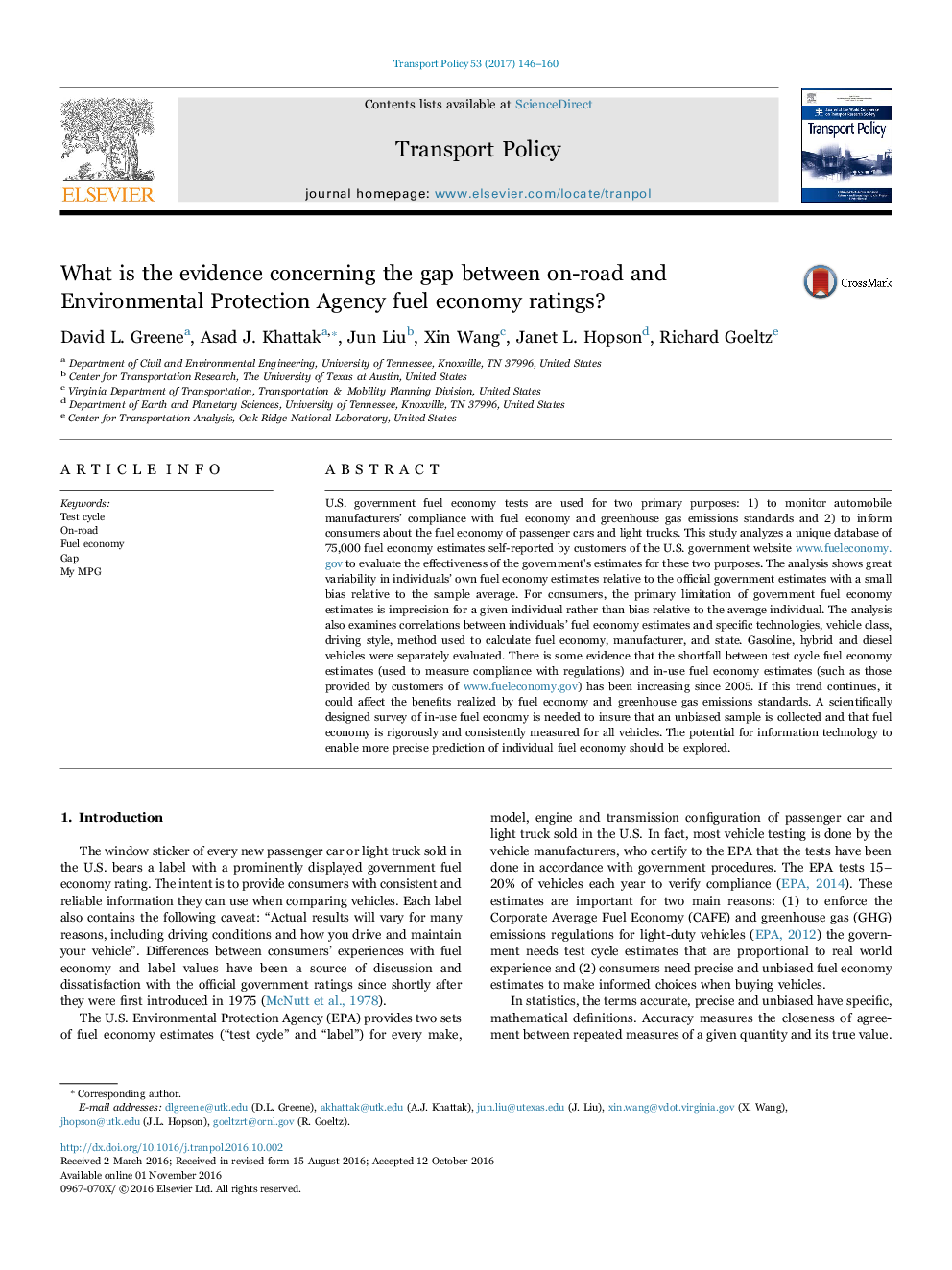ترجمه فارسی عنوان مقاله
شواهد مربوط به شکاف بین رتبه بندی سوخت های آژانس در آژانس های حفاظت محیط زیست چیست؟
عنوان انگلیسی
What is the evidence concerning the gap between on-road and Environmental Protection Agency fuel economy ratings?
| کد مقاله | سال انتشار | تعداد صفحات مقاله انگلیسی |
|---|---|---|
| 139256 | 2017 | 15 صفحه PDF |
منبع

Publisher : Elsevier - Science Direct (الزویر - ساینس دایرکت)
Journal : Transport Policy, Volume 53, January 2017, Pages 146-160

